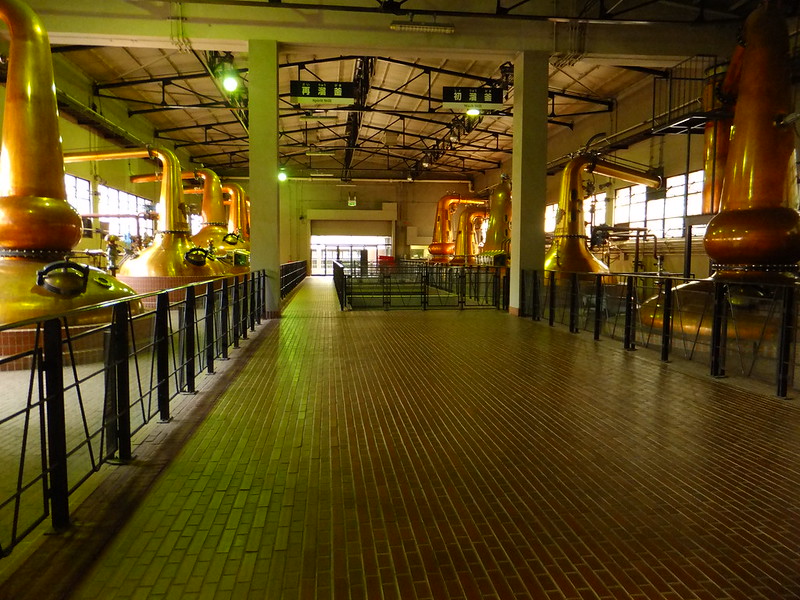It’s Tough to be a Florida Distillery

The laws concerning craft distilleries was updated in 2021. As a result, this blog post no longer reflects current Florida law. For the latest, see: 2021 FLORIDA CRAFT DISTILLERIES LAW: GENERAL OVERVIEW.
Federal and Florida laws make it hard for all alcoholic beverage manufacturers to operate and thrive. But the regulatory landscape is particularly hard for Florida distilleries. Here are six reasons why it is tough to be a Florida distillery.
No. 1: Cannot Own Florida Distributors or Retailers
Florida’s Three Tier System prohibits Florida distilleries (including blenders and rectifiers)–like Florida breweries and wineries–from being licensed as an alcoholic beverage distributor or retailer. The same goes for any person who has a control interest in the management or profits of a Florida alcoholic beverage manufacturers. Distilleries and their owners are principally limited to making or blending distilled spirits and selling their products to licensed distributors, with a narrow exception for gift shop sales (discussed next).
No. 2: No Retail Sales Outside Attached Gift Shop
Florida craft distilleries (those that product 75,000 or fewer gallons per year) are permitted to have a gift shop attached to the distilling space. The gift shop must be contiguous to the licensed distilling space. This means that a distillery cannot have its distilling plant located in an industrial area and having a separate gift shop located in a commercial area, such as a heavy tourism zone. A distillery could place a separate licensed distilling space in a commercial area, but having a distillery in those places is often prohibited by municipal zoning ordinances.
Licensed rectifiers or blenders of distilled spirits cannot have a gift shop, because they do not qualify as a Florida craft distillery.
No. 3: No Sales by the Glass
In craft distilleries’ attached gift shops, sales are limited to sealed bottles for consumption off premises. Florida craft distilleries cannot sell their products by the glass or for consumption on the premises. This means that craft distilleries’ gift shops cannot function like Florida breweries’ taprooms or Florida wineries’ tasting rooms (but see Florida Craft Distilleries Can Charge for the Tour, but the Liquor Must be Free).
No. 4: Limited Bottle Sales in Person Only
Florida craft distilleries are limited to selling no more than 6 bottles per brand per person per year. This means that distilleries must keep track of who they sell bottles to and how many of them have been sold in a year. Also, all sales by the gift shop must be in face-to-face transactions to individuals physically present at the gift shop who are purchasing for their own use (and not for resale). Florida craft distilleries cannot deliver or arrange to deliver bottles to individual purchasers, even if the individual purchaser is in person at the gift shop.
No. 5: Distillery Cannot be Used for Other Purposes
Federal laws and regulations put tight restrictions on where the licensed distillery premises can be located and how it can be used. Like all alcoholic beverage manufacturing, the manufacturing space cannot be located in a residence, shed, yard or enclosure connected to a residence. While licensed manufacturers can get permission from the federal TTB to use the same space in the manufacturing or packaging of beer and wine (called alternating use), alternating use is not permitted for a licensed distillery premises.
No. 6: Most Retailers Cannot Sell Spirits
The retailer sale of distilled spirits requires a more limited level of state license than sales of beer and wine. As a result, there are many fewer retailers in Florida who are licensed to sell distilled spirits as compared to beer or wine. In order to sell distilled spirits in Florida, a retailer must have a quota license or a special restaurant license. There is a limited number of quota licenses–both package store licenses and consumption-on-premises (COP) licenses–available in each Florida county. As a result, a secondary market exists for quota licenses, where the purchase of a quota license can cost well over $100,000 (largely depending on the county). The special restaurant license that allows sales of beer, wine, or spirits requires that the restaurant have a certain size and capacity and requires that more than 50% of revenues comes from the sale of food and non-alcoholic beverages.
Do you have questions about what Florida distilleries can and cannot do? Contact us at contact@brewerlong.com to schedule a a consultation with a beverage attorney.
Because we’re attorneys: This blog post is provided on an “as is” and “as available” basis as of the date of publication. We disclaim any duty to update or correct any information contained in this blog post, including errors, even if we are notified about them. To the fullest extent permitted by law, we disclaim all representations or warranties of any kind, express or implied with respect to the information contained in this blog post, including, but not limited to, warranties of merchantability, fitness for a particular purpose, title, non-infringement, accuracy, completeness, and timeliness. We will not be liable for damages of any kind arising from or in connection with your use of or reliance on this blog post, including, but not limited to, direct, indirect, incidental, consequential, and punitive damages. You agree to use this blog post at your own risk. Regarding your particular circumstances, we recommend that you consult your own legal counsel–hopefully BrewerLong.

